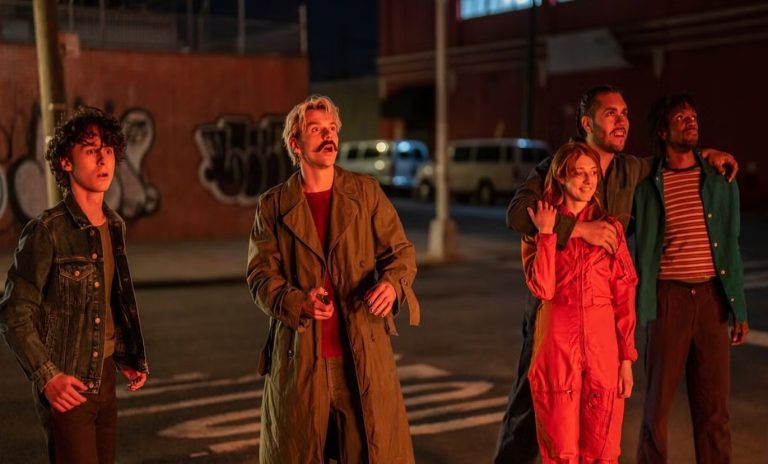The thing about adaptations is that they can be done in a million different ways. Therefore, there’s a lot of ways to go about this analysis. Many have written about I’m thinking Of Ending Things since the film was released, connecting it to the book it is based on, to Kaufman’s work, to existentialism, to the symbolic significance of the musical ‘Oklahoma’ and Kaufman’s use of the same in the film, and a million other things.
Kaufman’s I’m Thinking of Ending Things has a viscerality that, say, you would experience in an Allen Ginsberg poem. As filthy as it is poetic, as horrifying as it is difficult to look away from. Depicting horror without ghosts, the following words by Lucy (or “The Young Woman”) in the film describe the underlying thought and theme of the I’m thinking of Ending Things perfectly:
“People like to think of themselves as points moving through time, but I think it’s probably the opposite. We’re stationary and time passes through us. Blowing like cold wind, stealing our heat.”
This existential back and forth in Lucy, and as we later realize Jake, is repeated throughout the film using various ideas. The film wrestles with itself, just as its characters do, in its depiction of hope and its loss, love and apathy, reality and fantasy.
Related to I’m thinking of Ending Things: Every Spike Jonze Film Ranked
In this essay, I’d like to talk about, and understand the experience of watching the film; that of ingesting the fragmented visual narrative ‘in real time’; without the clean explanation of it all occurring in Jake’s psyche already available to us.
The Context
Of course, the overall theme from the book persists in Kaufman’s version as well- the entire world of the film is going on in Jake’s head, and it isn’t revealed explicitly anywhere. There are only hints- obvious ones, and vague ones- throughout the film. Yet, the experience of watching I’m thinking of Ending Things without that information leaves the viewer to interpret the narrative in quite a few ways. Therefore, this is the only point in the article where I will be talking about the ‘sense’ of the whole story.
In simple words, the entire film is happening in Jake’s head, a lonely and dejected janitor at a high school in his own hometown. There are hints suggesting this throughout the film. Concepts, sounds, characters, overlap as the story shifts from Jake and Lucy to ‘Jake the janitor’ going about his day at the high school; narrative dipping in and out of Jake the janitor’s consciousness.
There are constant continuity breaks- from reality to time to even Lucy’s character, everything is as if two-three parallel universes are thrown into a blender together. Stairwells that keep repeating, dogs that keep appearing and disappearing, parents that keep aging backwards and forwards. What seems to be a thought in Lucy’s mind at the beginning of the film, of ending things with Jake, turns out to be an extension of Jake’s own, much more existential and lonely thought of ending things completely; of taking his own life.
A stream of consciousness, mixed with fantasy and glimpses of reality, drive the narrative to reach an ending that doesn’t wrap things up neatly through a clean and simple revelation and suicide; a loose example of such a climax would be the one in Scorsese’s Shutter Island, where the breaks in reality are much less obvious to us, even though there are small leaks through Dicaprio’s reality throughout the film. In I’m thinking of Ending Things, despite Lucy’s confusion and terror at certain points in the story, the viewer is much more susceptible to the ruptures in reality than Lucy herself.
And as the film ends, even though the shift in the driving force of the narrative from Lucy to Jake is made pretty clear by bringing her and Jake the Janitor face to face, the narrative structure blows up even further at the revelation instead of getting cleaned up. Narrative shifts from dance, to theatre, to even animation and special effects as Jake the Janitor sits out in his truck, getting snowed under by the storm. It’s probably Kaufman’s way of symbolizing Jake’s psyche and imagination completely taking over his reality, until he finally lets go and carries through with the thought that triggered all of it; until he ‘ends things’, in more ways than one.
The Experience
We know that something strange is happening here. Lucy’s voice opens the film, talking about Jake’s parent’s house, talking about it being quiet and lonely as the camera moves through the same interiors, imitating someone walking around. The scene ends with her telling us that she will be going there for dinner later today for the first time. It’s an eerie beginning, one that hints to hauntings and/or time warps.
Continuity is the reference point through which meaning is looked at, and created in cinema. Many filmmakers have played with the center in their own ways to create newer meanings through their work; sometimes blurring lines, sometimes completely shattering it, and sometimes playing jokes on the viewer by giving a semblance of continuity only to keep shifting the reference point from one center to another. Kaufman, in his attempt to replicate a psyche and fantasy into a visual narrative, has employed all three.
The structure of the film reminds you of a Virginia Woolf text; you are always given more questions than answers, a scene could mean multiple things and you move forward into the film considering all the possible inferences to be, perhaps, right at the same time. Dialogues, actions, and even scenes, cut to the next one before finishing. There is no continuity even in reactions, especially during the car scenes between Lucy and Jake. We go back and forth between them during conversations, and the positions, mood, stance, tone change inexplicably. It’s as if Kaufman asked his actors for variations of a scene and then used and intercut all of them. All of this adds to the ‘strangeness’, the opposition to understood reality Kaufman has created in the film.
Related to I’m Thinking of Ending Things: Adaptation. (2002): The Eternal Sunshine of a Writer’s Mind
For us, the story starts with Lucy. It’s her monologue that we’re listening to. That has to mean we’re in her head, right? But she herself is a highly unreliable protagonist, despite mirroring our confusion multiple times. Her thoughts constantly go back and forth, from calling her and Jake’s connection something special to going back to saying how the relationship has run its course.
Initially, and for quite some time into the film, we see the ruptures in reality and time, the inconsistent dialogue, and the boxed aspect ratio of the film, as expressing Lucy’s interiority; her own sense of entrapment and forlorn loneliness that she delivers in a deadpan monologue. Jake is a bystander, exhibiting here and there, the human condition of seeking companionship and then not being able to figure out what to do with it. They sort of mirror each other in the awkwardness of their relationship.
In the car sequences, Lucy’s inner monologue is interrupted constantly by Jake’s attempts to make conversation with her, and we as viewers are on Lucy’s side of that interruption. Surprisingly, there are some genuinely delightful moments between the couple where they joke and laugh, the dreary aspects of it thus seem like they’re just contributing to a larger picture that the film is painting, and not just about their relationship being at a dead-end.
Throughout the journey to the parents’ house, Lucy talks about a life that is extremely dreary, exhausted, and repetitive, in her inner monologues. Yet, her interaction with Jake seems like any other. The dialogues between them aren’t anything special, until a sudden insightful monologue either of them goes into. Lucy’s narration of Dogbone is a chilling demonstration of the utter bleakness that the film is trying to illustrate as a part of human life. When she looks into the camera while narrating, it’s as if Kaufman is exposing the viewer to themselves, of having felt something like this as well.
Related Read to I’m Thinking of Ending Things: Donnie Darko (2001) Explained: A Journey Through Director’s Theory
At certain times Lucy is argumentative with Jake, at others she is amused by something Jake says (that she probably considered an uninteresting perspective), and at yet another, she finds him endearing. It seems like a color chart of the technicolor modern relationship- all the different states of minds and feelings involved, laid out as separate entities to be examined.
The tone of dread, almost horror, is maintained as they reach Jake’s house. There’s a sense of foreboding in us, maybe even Lucy, as she hears about the maggot infested pig. The quiet sound design, which has already set the tone with the metronome windshield wipers, adds to the sheer oddness one feels on entering the house with nothing but the buzz of florescent and the muffled scruffs from the couples feet on the carpet. Jake, ever the gentleman, offers her his warm shoes and they wait for the parents to come downstairs.
These shoes will later be given to Lucy again, by Jake the Janitor when she sees him at the school. The dog suddenly appears out of thin air, almost as if conjured to help Jake keep his excuse in front of Lucy. The parents, when they appear, are a strange couple as well. Laughing, fighting, the mother alternating between an expression of pain and a strange, practiced smile. As this dinner progresses, the world turns and twists within the film. From just appearing into the hallway, the scene cuts to the parents waiting for Lucy on the dining table. Jake seems tense, almost embarrassed at times, and later asks for many reassurances from Lucy on the state of his family.
Lucy becomes Louisa as she appears with a more ‘proper’ set of clothes and a pearl necklace, just before dessert. It’s as if someone, we don’t know who, maybe Lucy herself, is trying out different lives and characters for her. Jake’s parents start changing ages around this time too. Younger at some point, older at another. A young 70’s mother picking up Jake’s toys advises Louisa to stand up to Jake, leads her to the basement which Jake didn’t want her to see. She finds Janitor uniforms being washed in the machines down there. It feels like a revelation, the sounds around her are dampened, there’s an urgency to her monologue, yet we’re not sure. Although, slowly, we have started realizing that the Janitor is actually Jake.
But we still aren’t sure of what that means. Is it a past-future thing? Are these her memories? Oh, her art is his favorite artist’s art. Her poem is from a book he read as a kid. Is she imagining it? Is this just a symbol of an artist’s imposter syndrome manifesting around her? Are these his memories? Yet, Lucy is still the center of the conflict for us.
As they leave to go back, the focus starts shifting little by little. We see more of Lucy’s personality trials. The ride still starts with Lucy’s monologue. From a physicist to a poet, to a literary graduate, she changes roles at will. Her mannerisms change according to the role she takes on, the sudden appearance of a cigarette in her mouth as she imitates a pedantic and film critic, is almost funny. All of it asserts the idea of performance associated to ‘being’ as whole. At some point, Yvonne from Jake the Janitor’s TV appears in Lucy’s place and we’re getting more and more convinced of the connection between the two parallel stories.
We also start seeing Jake taking control of the narrative, the conversation. His interruptions of Lucy’s thoughts are not the only way he drives the plot forward. Jake and Lucy end up in stranger and stranger places, the story giving more and more hints of Jake’s connection to the Janitor as they go. Just as they reach the high school, we’re pretty sure of the connection as Jake says to Lucy, “I know every inch of this place.” From here, especially from the moment Lucy meets Jake the Janitor, the idea of this whole thing being in Jake’s head becomes a tangible possibility. Yet, what follows are a series of surreal sequences. Jake and Lucy are replaced by lookalikes who perform a dream ballet of a relationship at all its stages, which is brought to an end by a Jake the Janitor’s lookalike coming and killing Jake’s lookalike in a theatrical fashion; blood colored cloth coming out of his guts.
Also Read: Anomalisa (2015): Catharsis on Being and Love
While this sequence, and ones that follow, take more away from the flow than adding into it, according to me, I’m still going to try and dissect them for you.
The entire film has been about a fantasy, we realize that now. And even though this realization doesn’t take away everything that Lucy has given us throughout as a protagonist, the fantasy has reached the point where it started, and has now blown up. One imagines that Jake has lived his entire life in loneliness, being ostracized and unable to feel like he belongs anywhere; his desires buried deep inside his own head in the form of this life with a woman like Lucy.
It is a dream that is shattered by his reality as a Janitor, but also by his own actions throughout his life; by his decisions and inabilities. Is it tragic or pathetic? I think this is a question Kaufman doesn’t want to answer for you. Instead, he wants to open up the discussion for taking, for your subjectivity to arrive to a conclusion, or multiple ones, by itself. I think the answer is its both, and neither, because it’s also other things.
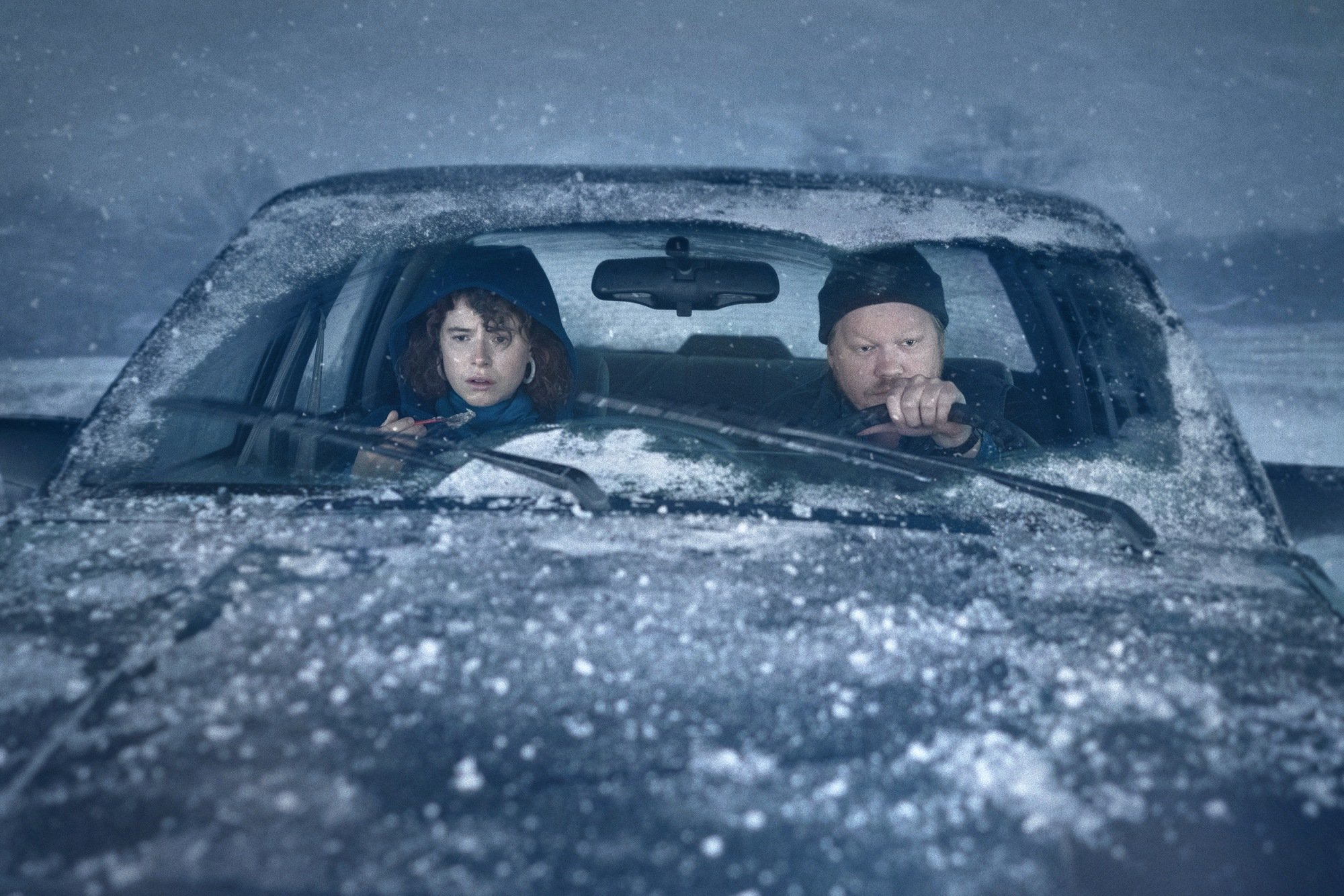
The sequences that follow- that of Jake following the fluorescent pig in the snow naked, and the one of Jake performing ‘Lonely Room’ from Oklahoma to an audience of people in his life looking a stage makeup kind of old – are no less perturbing. While the first is a simple visualization of Jake’s own experience of his death, the second one is his need for acknowledgment throughout his life, blown out of proportion.
By the end of his performance on stage, we’re a little repulsed not just because of the grotesque visualization of his desire for acceptance and greatness at his dying moments, but because we realize that these are fantasies that have become intrinsic to human existence. As Jake talks about it in the car with Lucy, the media and culture seeps certain ways of living and understanding and gauging worth into our consciousnesses, which results in lives that remain, and extinguish unfulfilled.
Our Original Review of Charlie Kaufman’s Film
I’m thinking of Ending Things is a haunting and breathtaking display of a human life left on Kaufman’s dissecting table. He plays with it, goes back and forth on what to do with it, looks at it in disgust, and laments the loss and pain it has felt as it decides to burn itself out. And while the climax is a little more distracting in its fantastical surrealism than it needed to be, the film by itself is in no way incompetent and deserving of dismissal.

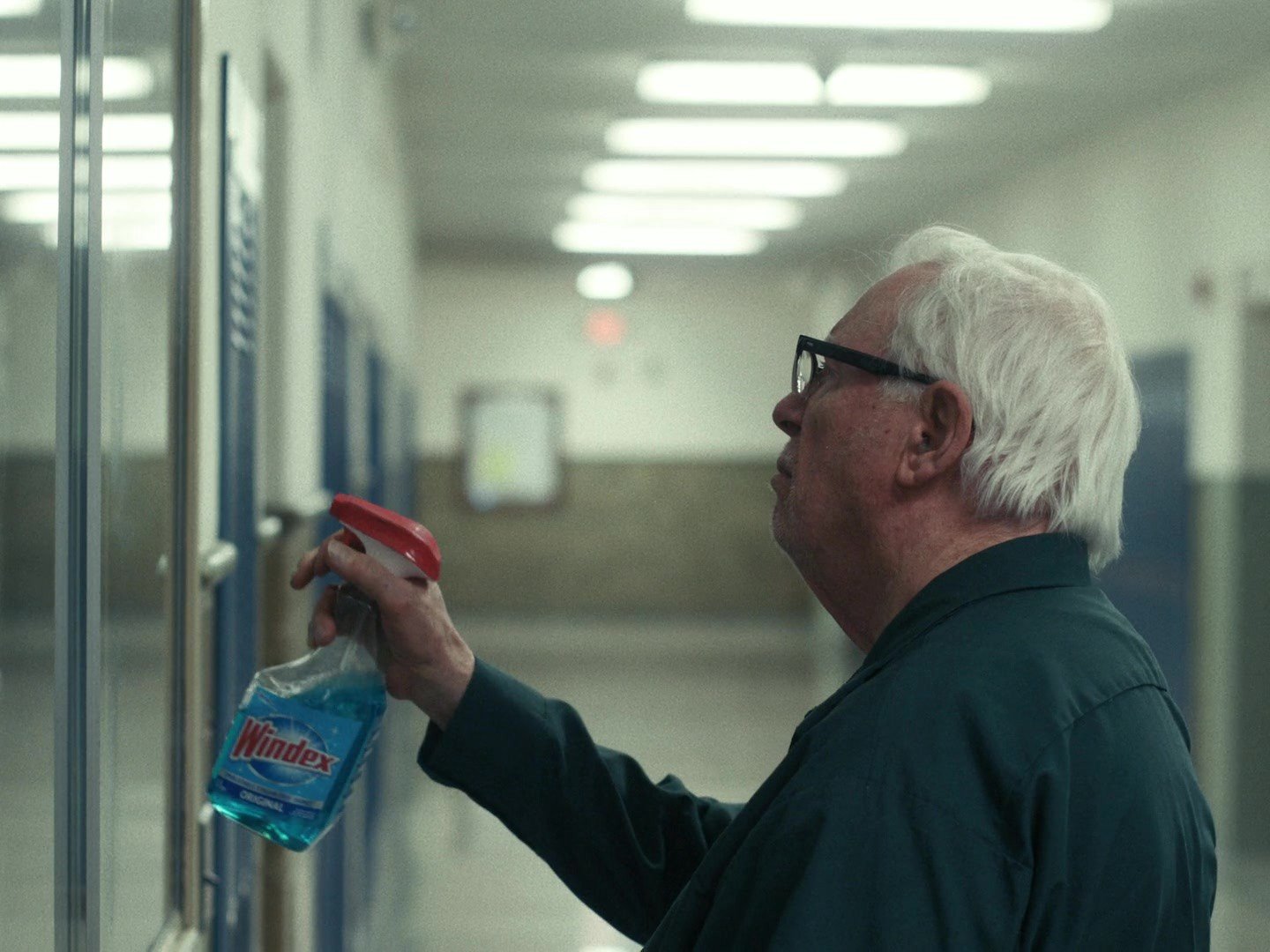
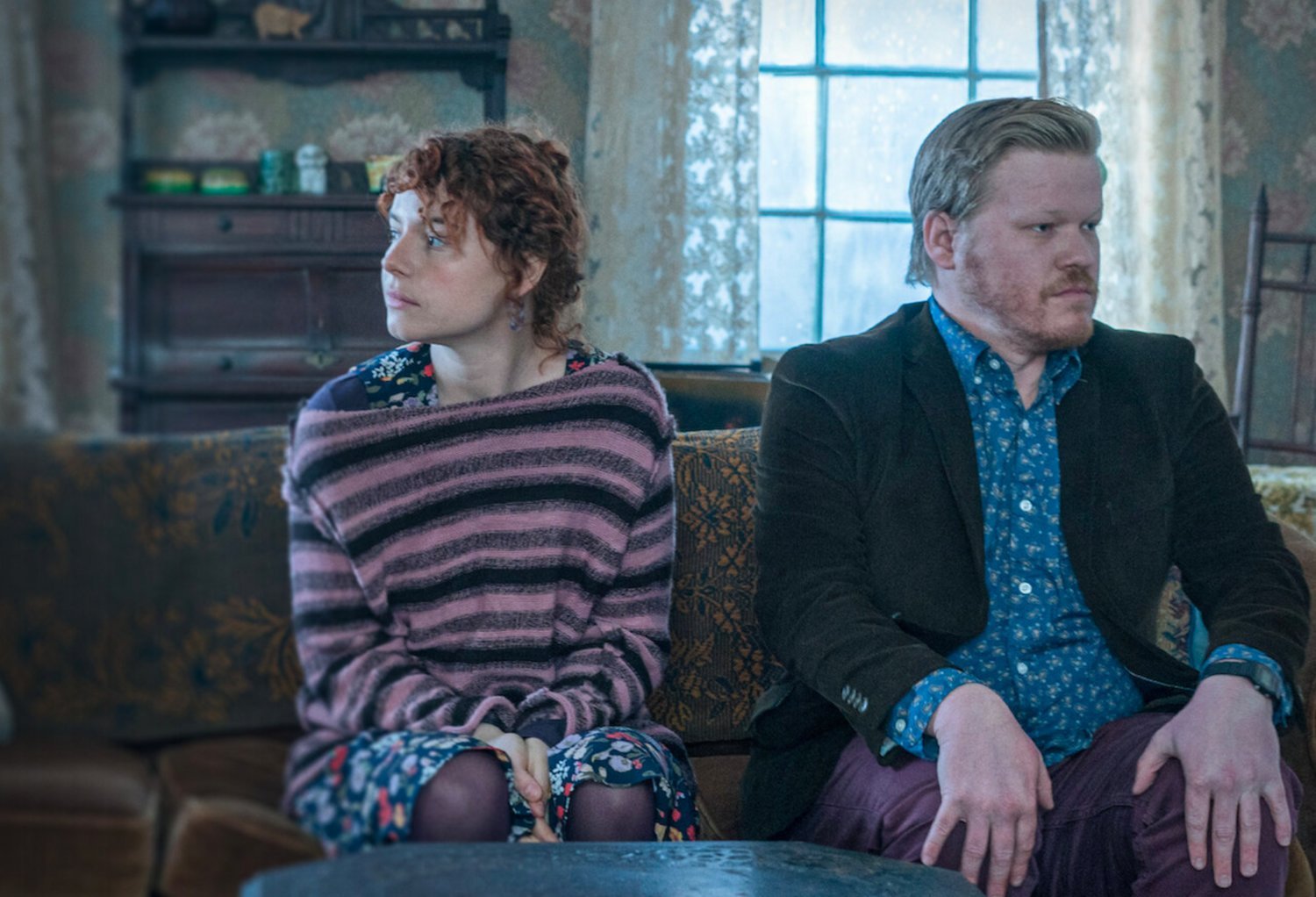
![Loveless [2017] – A Blistering Tale of Contemporary Human Relations](https://79468c92.delivery.rocketcdn.me/wp-content/uploads/2018/02/mw2tuy53lbbffhwkxpvjkfu5su-768x432.jpg)
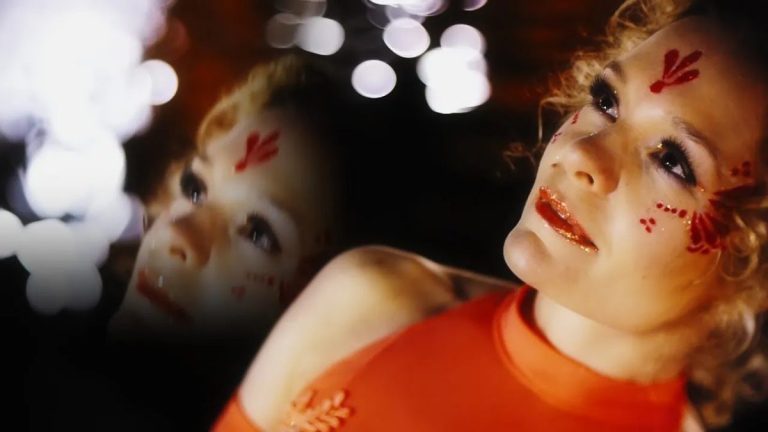
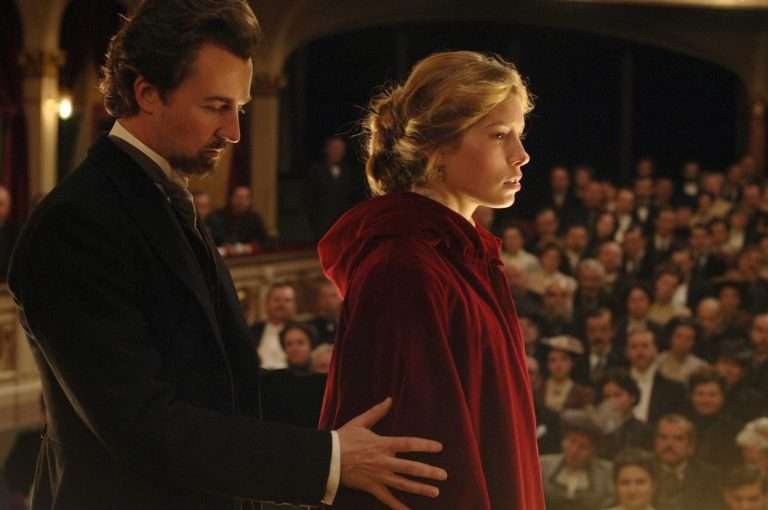
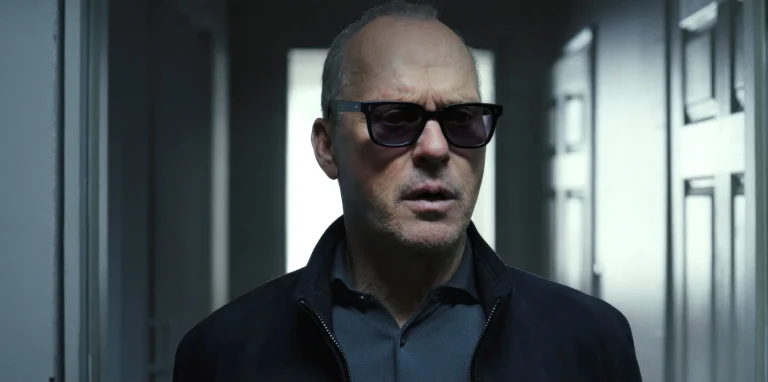
![Lotawana [2022] Review: A low-key romance about living life on the fringes](https://79468c92.delivery.rocketcdn.me/wp-content/uploads/2022/02/Lotawana-Frame-Grab-by-Trevor-Hawkins-2-768x324.jpg)
